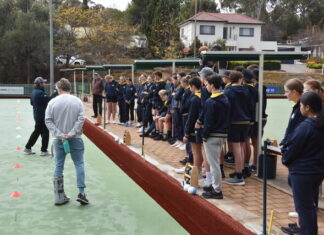
The wine and grape industry has lamented a lack of support in the federal budget during one of the most difficult times in recent history for growers, with the nation’s peak industry body calling it a “missed opportunity” that ignores industry’s pleas for urgent support.
Australian Grape and Wine (AGW) chief executive officer Lee McLean has criticised the budget and stated it provided no relief for the serious challenges facing growers and winemakers in regional communities across much of Australia.
“The industry’s struggles are not the result of normal market fluctuations, but stem from factors outside the industry’s control, including the loss of our largest export market in 2020,” he said.
In January, AGW put forward proposals in its pre-budget submission to the government, which considered options for transitioning growers who may have unrecoverable losses.
The submission suggested without government intervention to support growers in this critical period, the sector would experience forced exits, widespread vineyard abandonment, which could lead to significant biosecurity risks, attrition of younger generations in the affected areas, and adverse mental health consequences across regional communities.
With the current oversupply of red wine, reports of growers ripping out vines and considering more financially viable crop alternatives are becoming increasingly common in broad scale production regions such as the Riverland
Mr McLean criticised the omission of the industry’s modest pre-budget submission requests, including a $30 million sustainability package, $36 million for export assistance, and $20 million for domestic wine tourism.
“We made it crystal clear – many in regional wine communities across Australia are on their knees and need urgent government action to stop a bad situation from becoming a catastrophe,” McLean said.
“However, instead of support, all we got was a new tax in the form of the deeply flawed Biosecurity Protection Levy.”
Mr McLean noted while China’s decision to lift import duties had been a positive development for the industry, it would not resolve the issues facing growers and winemakers.
“The economic shock experienced by our industry has led to unsustainable prices for grapes, an oversupply of wine, and increasing economic disadvantage in regional Australia,” he said.
“It’s a damning indictment of just how dire the situation is when the refund on an empty wine bottle is worth more than what many of our growers receive for the grapes that fill it.”
Shadow Minister for Primary Industries and Regional South Australia, Nicola Centofanti, said the budget showed disregard for the grape and wine sector, labelling it “as disappointing as it is dangerous”, adding the industry had every right to feel outraged by their deliberate oversight.
“South Australia’s wine industry produces about half of the country’s wine, contributing billions of dollars to the economy,” Dr Centofanti said.
“The industry is on its knees,it is not rocket science to realise that the wine industry needs support to transition to more sustainable production levels and it also needs adequate and effective assistance to help growers diversify to ensure that our agricultural land remains productive.”
Mr McLean called on the government to reconsider this “missed opportunity.”
“Australian Grape and Wine is committed to fighting for growers, winemakers and regional communities. We will not let this go,” he said.
“This deliberate failure to help families in regional Australia jeopardises the viability of entire communities, and without help it is only going to get worse.”





